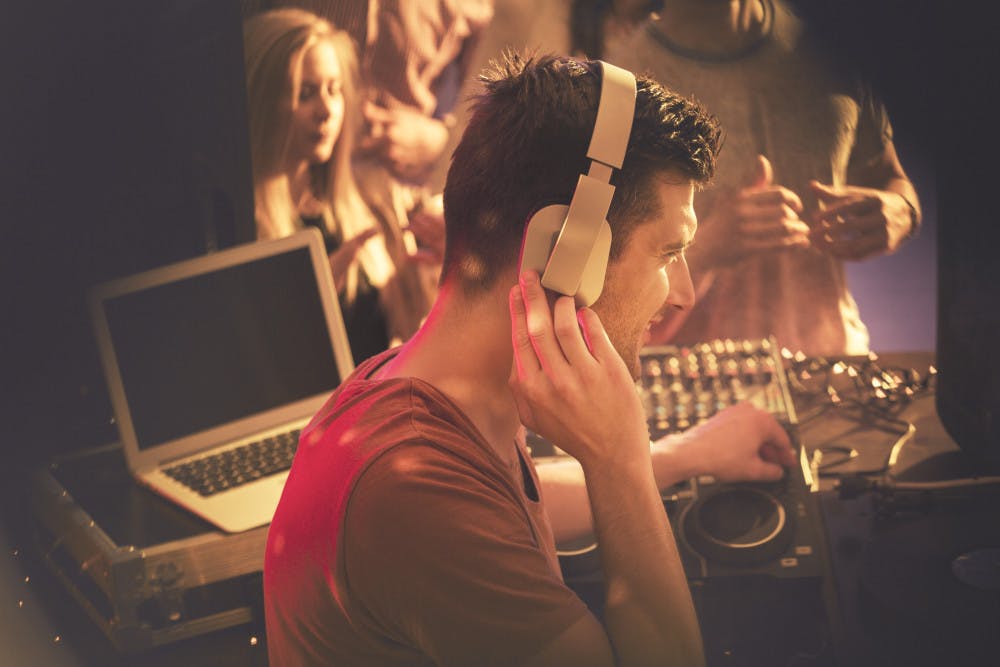By Tara Mild
Correspondent
At this point it should be common sense that partying during a raging virus is a big no-no, but it seems that some people still haven’t received the memo.
I get it. School has started back up, and many college students are moved in with their housemates after a summer at home. It’s understandable to think that you can just kick back, host a gathering with your friends and pretend that life is back to normal.

But the virus doesn’t work like that. The virus doesn’t care. It’s silent, stealthy and unpredictable. It’s still out there, and it can reach any person, regardless of their age, race, ethnicity, religion or ability.
Cases in New Jersey have been on the steady rise, and according to the College’s Covid-19 dashboard, there are now 89 positive cases of COVID-19 among off-campus students — an increase of 37 cases in eight days. Regardless of whether or not the College is holding in-person classes, the number of positive cases in the school community is concerningly rising.
Going to parties not only puts you at risk, but it severely increases the risk of contraction in the greater Ewing and Mercer County community.
Students are lucky to be in a diverse community, especially with the College’s history and connection to Trenton. That relationship shouldn’t be disregarded by ignoring the state’s guidelines on preventing the spread of the virus.
New Jersey protocol states that general indoor gatherings must be limited to 25 people or 25 percent of a room's capacity, whichever number is lower. “All attendees at indoor gatherings must wear face coverings and stay six feet apart,” and any outdoor gatherings “must be limited to 500 people and social distancing must be practiced.”
Ewing and other Mercer County residents did not have a say in whether or not students would come back to the local community, but many returned in small waves, bringing germs with them. Neighbors looked on as students moved in and set up beer pong tables in the backyard.
Even though some students will not experience the severe effects of the virus, that doesn’t mean that our neighbors won’t either. Covid-19 disproportionately affects communities of color, so by selfishly partying, students are contributing to the racial disparities in their own backyards.
According to the census, Black people make up 21.5 percent of Mercer County’s population, with 50.7 percent living in Trenton. Hispanic or Latino residents make up 18.5 percent of the population in Mercer County, and 36.4 percent live in Trenton. People of color make up 87.1 percent of Trenton’s population. These residents are at an increased risk of contracting the virus because of systemic issues that have plagued our country for decades.
We’ve spent months thanking and cheering for essential workers like nurses, doctors, firefighters and so on, but there are also the essential workers that include folks in the service industry, like grocery store workers and transportation workers. It includes a variety of government workers, like the post office workers. These roles have traditionally been the pathway for Black people into the middle class. If we were to look at specific industries, there are large numbers of Black and Brown folks who work in these positions, and exposure risks are higher because they cannot work from home.
The CDC notes how historic redlining and residential segregation has increased the gaps in wealth and home ownership, access to insurance, access to medical care and access to clean air. With these factors considered, how can these communities of color access the proper care that they need should they contract the virus?
Large gatherings are a direct contribution to the disproportionate effects of Covid-19 in communities of color. You expose yourself to the virus; you decide to go out to eat, go to the grocery store or take public transportation somewhere; you increase the transmission of the virus to everyone around you.
One of the College’s values is integrity, meaning that “we act ethically and take responsibility for our choices.” Do yourself a favor and ask yourself if you have acted with integrity lately, because by the looks of it, you may not have.
Stop partying. Wear a mask. Social distance. Just because you’re over the virus, doesn’t mean it’s actually over.







